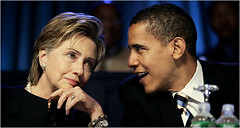—The Washington Post Book World
“In this meditation on how faith shapes world events, Albright explores Islam’s roots, predicts that the U.S. invasion of Iraq may rank ‘among the worst foreign policy disasters’ in our history and urges America to tread lightly. . . . An engrossing, important read.”
—People (4 stars)
“An absorbing, well-written, informative and thoughtful look at U.S. foreign policy and the role religion plays within it. . . . Albright offers a thought-provoking and original approach to incorporating religion into international relations.”
—Associated Press
Dr. Albright addresses some of the most controversial political and social questions of our time. Does America have a unique relationship with God? Has the United States, as George W. Bush has proclaimed, been divinely ordained to bring liberty and democracy to the world? What role does the Christian right have in influencing U.S. foreign policy? What strategy should America adopt in shaping its relations with the Muslim world? Is peace still possible in the Middle East?
ABC News: Read Chapter One
Albright lectures on foreign policy
Yale Herald
by Kristen Von Hoffmann
April 2, 2004
"Madeleine Albright, U.S. secretary of state under President Bill Clinton, LAW '73, and the highest ranking woman in the history of the U.S. government, spoke to a packed audience at the Yale Divinity School on Tuesday. The speech, entitled 'The Mighty and the Almighty: United States Foreign Policy and God,' examined how religion affects foreign policy and specifically how the United States has undertaken certain political actions using religious justification in the war against terrorism.
"Albright said that the United States will never unite the world with the idea that America has a unique position with God. She went on to say that the problem with Bush's approach is that it comes very close to justifying America's fight against terrorism using Christianity, which "plays right into terrorists' hands," she said.
"'I believe that we can unite the world in opposition to the murder of innocent people,' she said. 'But we will never unite the world in support of the idea that Americans have a unique relationship with God.'
"She prompted the audience to consider how to establish certain universal moral standards without religious guidelines. She admitted that there would inevitably be disputes between cultures who were asked to agree on moral norms without a religious motive but stated that certain moral standards, 'should not be in question.' The killing of innocent people is not acceptable, she said. 'We must stop turning humans into robots and people into bombs. We must ask ourselves how best to do this.'
"She emphasized that one of America's founding principles was the separation between church and state and that this should be upheld in future politics.
"However, she said that religion can play an important role in moderating differences between cultures. "The borderless nature of religious faith often makes it easier for leaders to talk to one another, easier for nations to agree on common values," she said.
"During her tenure, Albright successfully expanded and modernized NATO, promoted peace in the Balkans, and expanded democracy in Europe, Africa, Asia, and Latin America."
Los Angeles TimesPBS Interview, May 2006
Good versus evil isn't a strategy: Bush's worldview fails to see that in the Middle East, power politics is the key
by Madeleine Albright
March 24, 2006




































































No comments:
Post a Comment